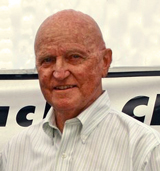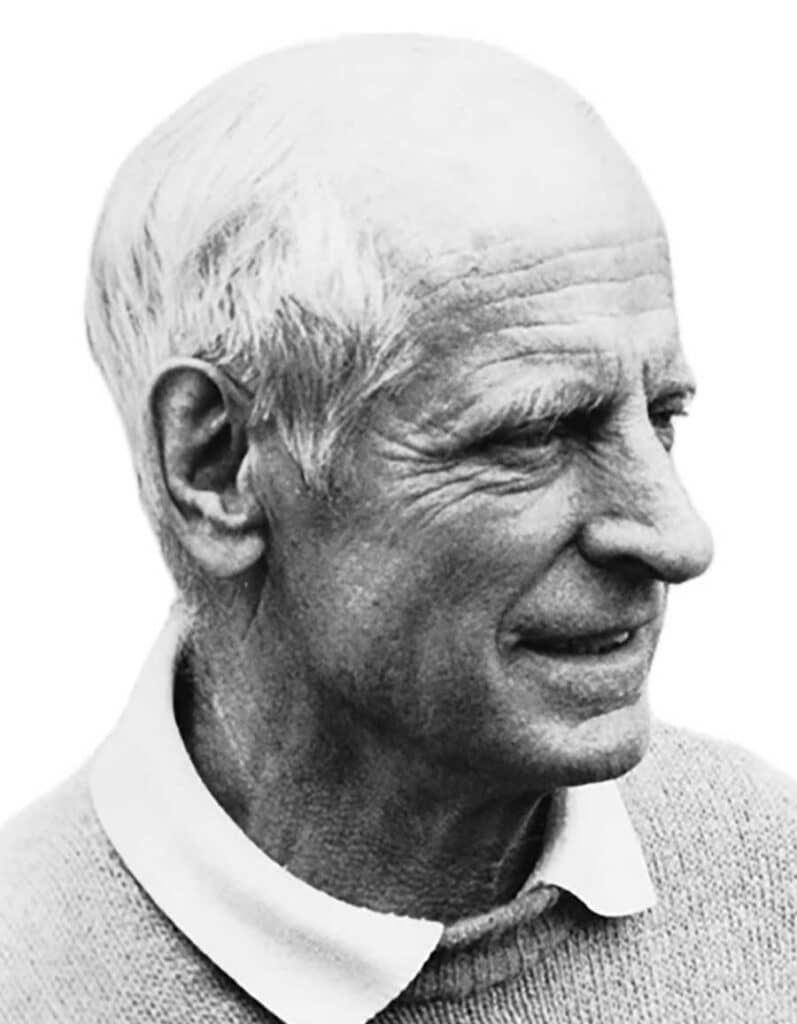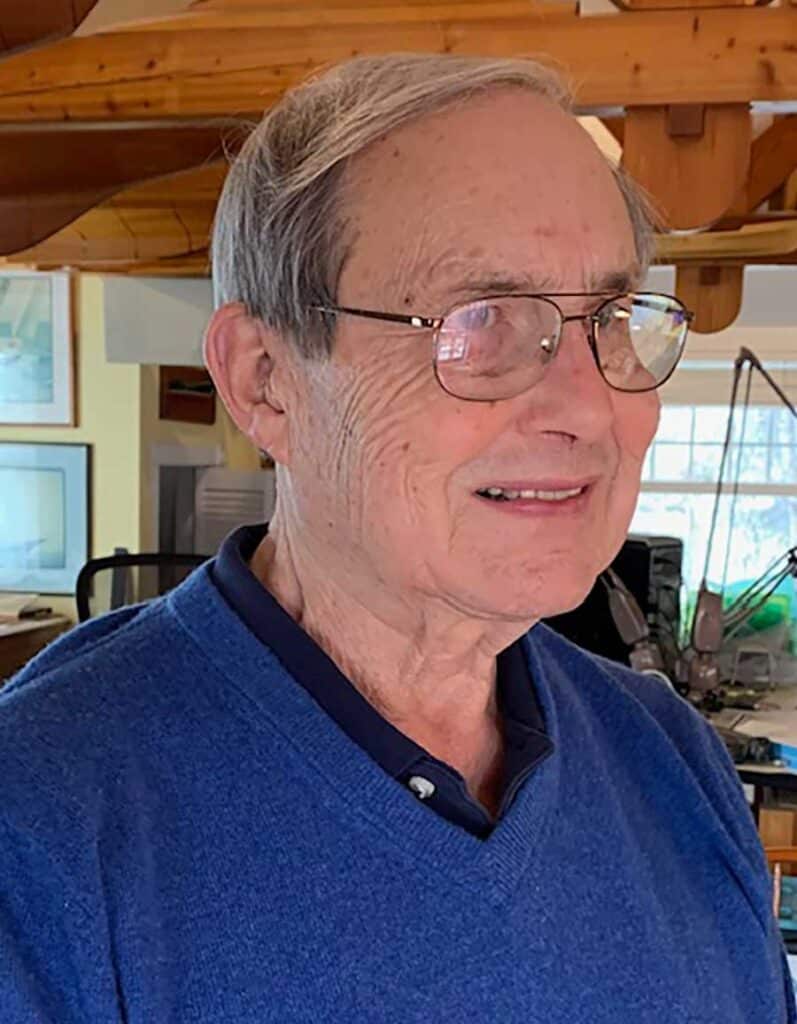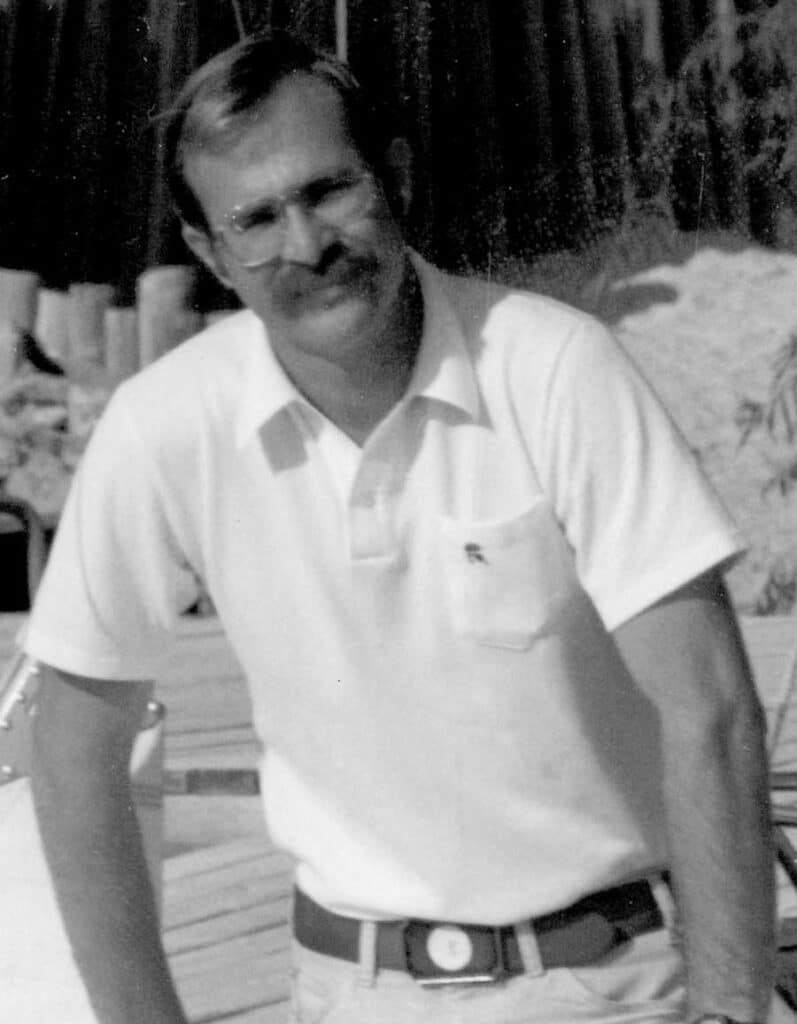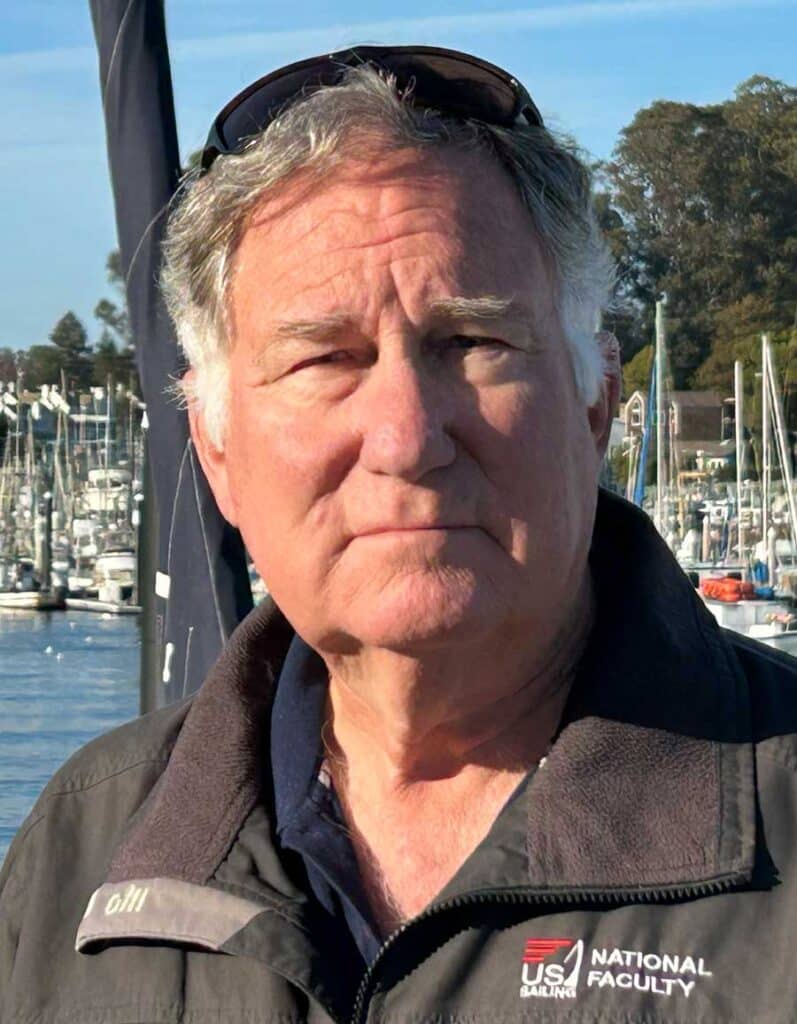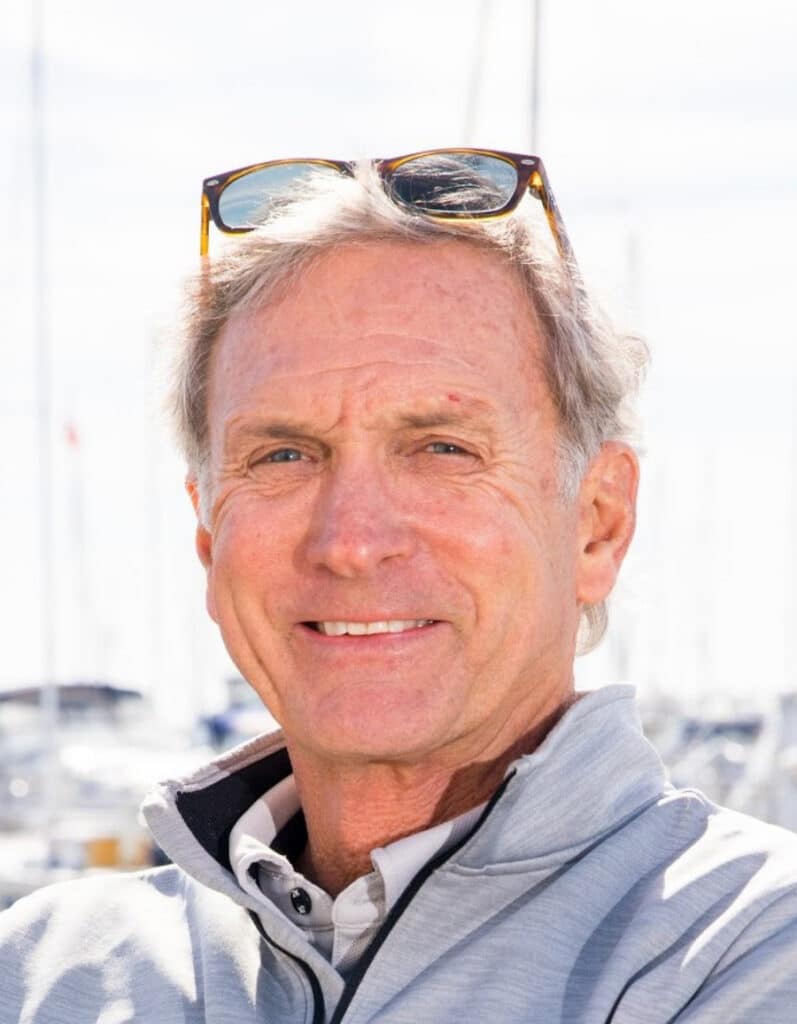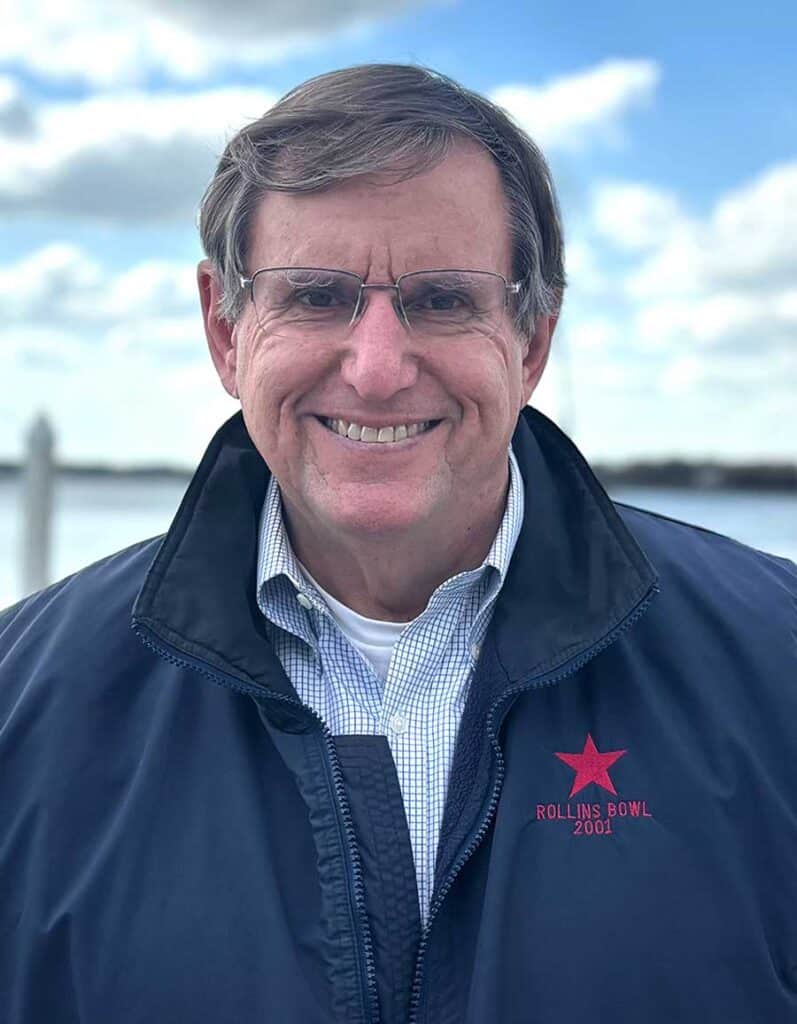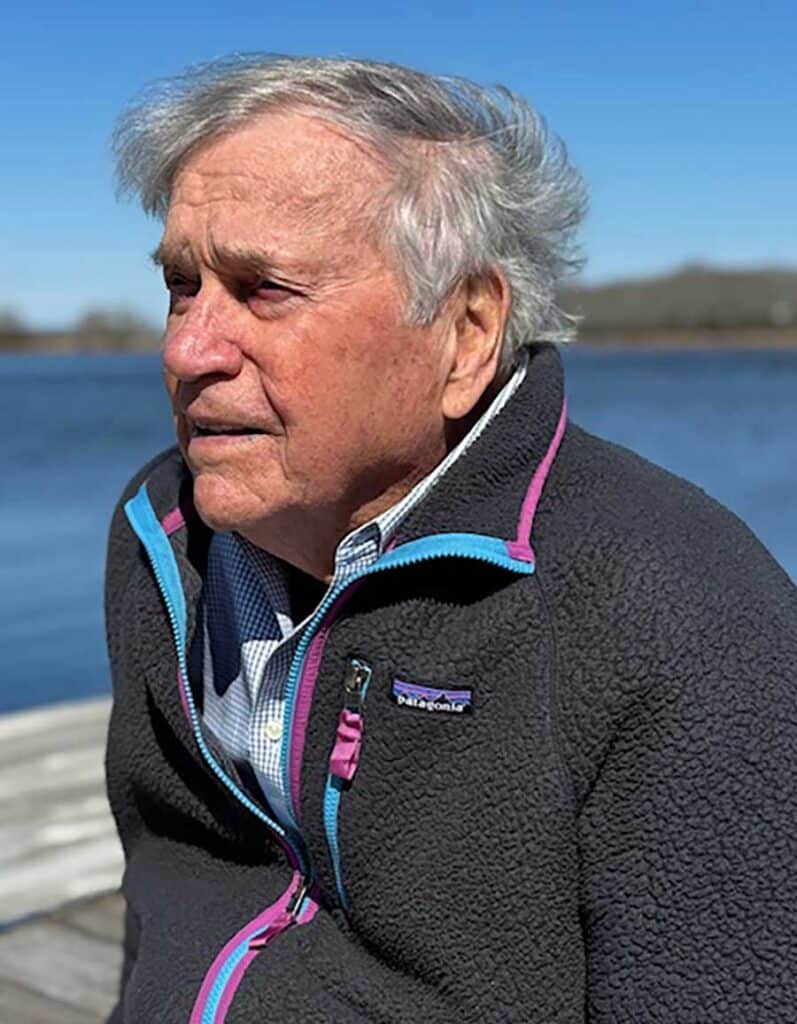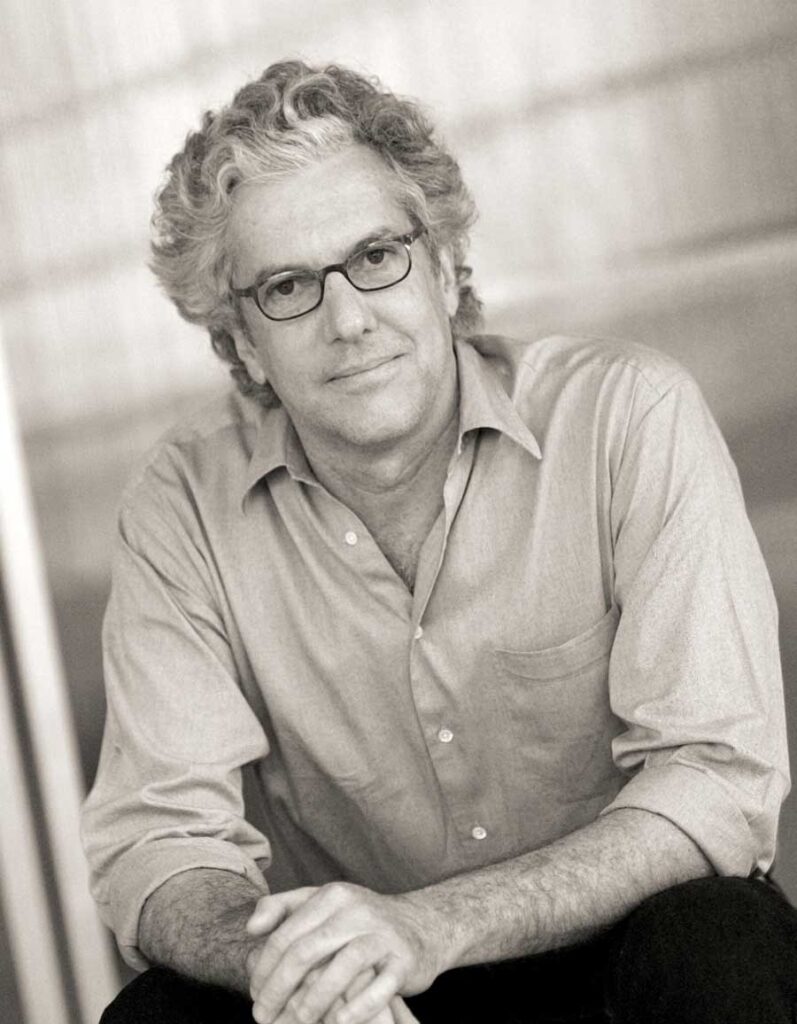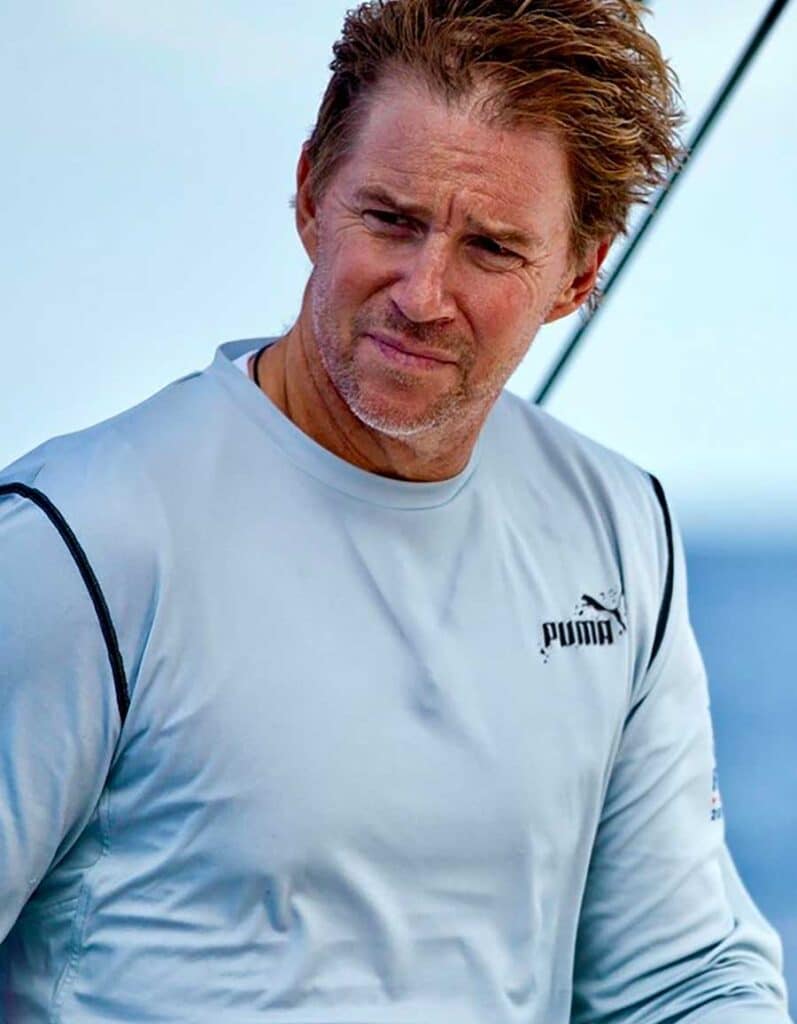William Peter Ficker
Pomona, California
December 12, 1927
– March 13, 2017
Quicker
One afternoon in 1970, Bill Ficker, the Star World Champion (1958) and Congressional Cup winner (1974) who would steer Intrepid to an America’s Cup win that year, encountered Ted Turner after winning a trial race in Newport, Rhode Island. “He walked up to me,” Ficker recalls, “and said, `Ficka is quicka.’ The next day he arrived with a box full of buttons bearing that slogan. I cringed a little bit.”
Putting aside superior tactics and his allocation of responsibility that produced a happy boat, Ficker credits Cal Tech with Intrepid’s quickness. “They interpreted all our speed data,” he says. “We sailed precisely to the numbers they gave us. The crew was very disciplined. Tactician Steve van Dyck and navigator Peter Wilson did a good job keeping me on the numbers.”
Wilson says Ficker had a unique way of motivating the crew. “He wanted all of us to decide how best to do our jobs. If I said we were over our numbers, guys trimming would have freedom to make changes so we’d point higher, and vice versa. Once Bus Mosbacher came to practice with us in case something were to happen to Bill. The jib trimmer made an adjustment. Bus said, `I didn’t call that.’ Bill’s way was very different. He built teamwork, with never a harsh word.”
Bill Ficker has had a cat bird seat for watching both his beloved Star class and the America’s Cup go through significant changes. The Star class was one of the few games in town 75 years ago, and at one time, the only class with a world championship regatta. He applauds its ability to police itself and to adapt to new materials and technology. Ficker helped direct that adaptation as a member of the class’s technical committee.
As for the Cup, Ficker has said the big catamarans were “flat out dangerous.” Those who sailed them would agree. But lately, he has become more philosophical. “I’ve always thought of the Cup as yachting,” he says, “not sailing, with something about the social end that bound people together. When I sailed, people in the syndicates truly loved the sport. It wasn’t commercial at all. The possibility of making money from something substantially changes the attitude. But it also permits a lot of people to enter into the sport when previously they could not.”
– Roger Vaughan

